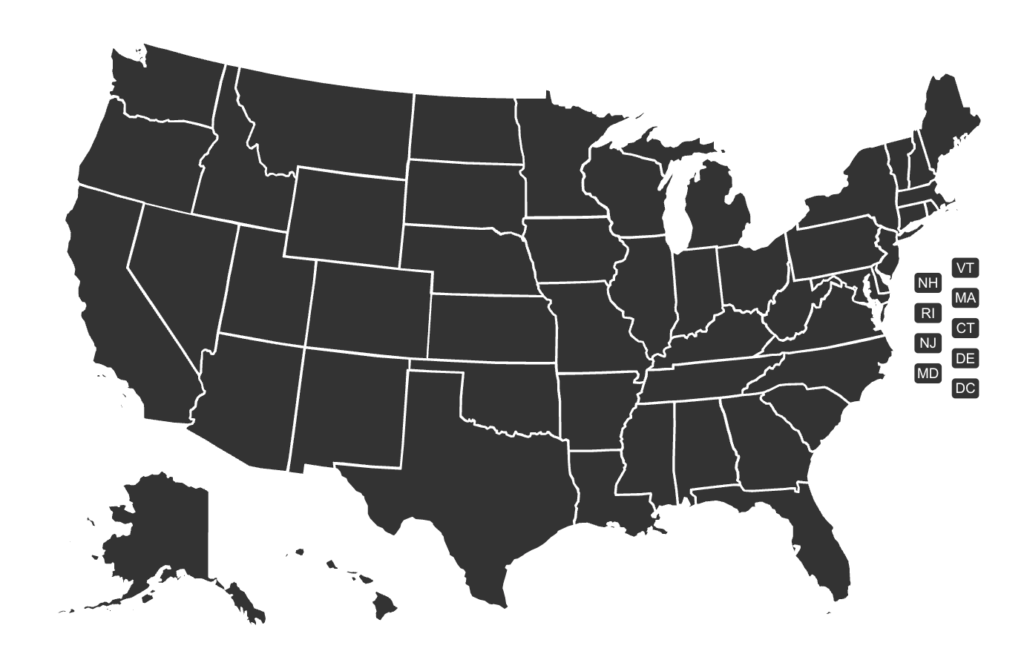Complete Guide to the Family Nurse Practitioner (FNP) Specialty
Definition: What Is a Family Nurse Practitioner (FNP)?
A family nurse practitioner (often referred to as an FNP) is a specialty NP who focuses on the acute or primary care of families (from children to adults). They receive advanced training through a specialized MSN or DNP family nurse practitioner program and are considered Advanced Practice Registered Nurses (APRNs). FNPs are particularly important as they can perform many of the same duties as a medical doctor, and often serve as primary care providers for patients – especially in rural or underserved areas. Depending on the state the FNP lives in, he or she may have varying levels of practice authority. Practice authority refers to the level of physician oversight that an FNP requires – some states require oversight, while others allow FNPs to practice independently without it.
Family Nurse Practitioner Scope of Practice
FNPs perform a wide variety of tasks day-to-day for patients of all ages. Common duties include:
- Performing routine physical examinations
- Assessing acute illnesses and/or injuries
- Ordering/running diagnostic tests
- Performing or assisting with medical procedures
- Helping patients manage chronic diseases
- Educating patients about preventive care measures
- Performing well-woman examinations, to include prenatal care
- Performing well-child examinations to infants and children
- Working alongside an interdisciplinary team to include physicians and specialists
- Promotion of healthy lifestyles
- Prescribing medication to include controlled substances
Skills & Abilities
To be a successful FNP, the following skills and attributes are often necessary:
- Technological skills including Microsoft Office Suite and medical software literacy
- Critical thinking abilities
- Customer service and interpersonal communication skills
- Attention to detail
- Decision-making abilities
- Empathy
- Outstanding listening skills
- Ability to communicate with patients of all ages
Family Nurse Practitioner Certification & Subspecialties
Once a student successfully completes an accredited online Family Nurse Practitioner program, they will need to complete an FNP certification exam in order to become licensed as a Nurse Practitioner. Grads can choose between two different FNP certification examinations, the FNP-C or the FNP-BC. The difference between these two certifications is essentially the organization that offers them, and their examinations have some slight differences, but they will both result in a respected FNP certification.
| FNP-C | FNP-BC | |
|---|---|---|
| Organization | American Academy of Nurse Practitioners (AANP) | American Nurses Credentialing Center (ANCC) |
| Cost | AANP Members – $290Non-Members – $365 | AANP Student Member – $290AANP Member – $340American Nurses Association Member – $295Non-Member – $395 |
| Number of Questions | 150 | 175 |
| Eligibility Requirements | Must be a graduate of an accredited MSN, Post-Grad, or DNP Family Nurse Practitioner program | Must be a graduate of an accredited MSN, Post-Grad, or DNP Family Nurse Practitioner program, hold a current RN license, and have completed all prerequisite coursework |
Throughout their schooling and clinical residencies, FNPs often have the opportunity to enter into a subspecialty. This means that the nurse will go through a standard Family Nurse Practitioner degree program, but may have the opportunity to take specialty elective courses or complete their clinical requirements in a subspecialty area to get the experience needed to pass additional, optional certification exams. These subspecialty certifications can also be obtained at any point during the FNP's career. Keep in mind that each certification will have its own list of requirements for eligibility. Popular options for FNP subspecialties include:
- Cardiac
- Critical Care
- Dermatology
- Endocrine/Diabetes
- ER/Trauma
- Medical-Surgical
- Oncology
- Orthopedics
- Perinatal
- Post-Partum
While it is not a requirement for an FNP to subspecialize, many find that adding a certification expands their employability and allows them to practice in the focused area of care that they may be passionate about.
Becoming a Family Nurse Practitioner
If you are curious about the pathway to becoming a nurse practitioner, it all starts with enrolling in an accredited program in your specialty of choice. For those interested in an online Family Nurse Practitioner program, there are several degree levels to choose from. These include:
The degree you choose should align with your prior experience and future goals. Once a student has successfully completed their online FNP program, they will need to become licensed and certified in their state and become familiar with their state’s practice authority level.
For current RNs who know they wish to aspire to an FNP role in the future, gaining experience caring for patients across the lifespan in settings such as primary care, pediatrics, home health, and more can give them a helpful background on which to build from in an online FNP program.

- Alabama
- Alaska
- Arizona
- Arkansas
- California
- Colorado
- Connecticut
- Delaware
- Washington, DC
- Florida
- Georgia
- Hawaii
- Idaho
- Illinois
- Indiana
- Iowa
- Kansas
- Kentucky
- Louisiana
- Maine
- Maryland
- Massachusetts
- Michigan
- Minnesota
- Mississippi
- Missouri
- Montana
- Nebraska
- Nevada
- New Hampshire
- New Jersey
- New Mexico
- New York
- North Carolina
- North Dakota
- Ohio
- Oklahoma
- Oregon
- Pennsylvania
- Rhode Island
- South Carolina
- South Dakota
- Tennessee
- Texas
- Utah
- Vermont
- Virginia
- Washington
- West Virginia
- Wisconsin
- Wyoming
Family Nurse Practitioner Employment Opportunities
Once you complete an online FNP program and receive licensure and certification, you may wonder what kind of employment opportunities will be available to you. Nurse practitioners in general have a very favorable job outlook, with a 26% job growth rate through 2028 according to data from the U.S. Bureau of Labor Statistics (which is much faster than other professions).
While FNPs are commonly employed in hospitals and private medical offices, they can also find employment in a wide variety of settings, including:
- Clinics
- Community Health Centers
- Colleges/Universities
- Outpatient medical facilities
- Home health care
- Telemedicine
Family Nurse Practitioner Salaries
Family nurse practitioners can enjoy generous salaries and benefits. According to the U.S. Bureau of Labor Statistics, the average general nurse practitioner’s salary is roughly $115,800 annually or $55.67 per hour. FNP salaries can earn anywhere from $79,000 to $117,000 annually. Factors that contribute to FNP salary figures include:
- City and state
- Degree level obtained
- Certifications held
- Type of employer
- Years of experience

